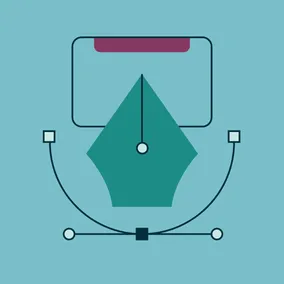Why We Don’t Do Spec Work

Spec work skips collaboration, discovery, and context. Case studies show real results, not guesses. Instead of free samples, evaluate agencies through portfolios, interviews, and references to find a trusted partner for your goals.
When choosing a design agency for your next website redesign, it’s natural to want a way to compare potential partners. Sometimes, this leads to requests for speculative work—a free sample of design concepts or ideas—to gauge capabilities. While this might seem like a logical step, here’s why it’s not the best way to evaluate an agency’s potential.
1. Design Is About Collaboration, Not Isolation
Great design doesn’t happen in a vacuum. It’s the product of a thoughtful, iterative process rooted in collaboration—between client and agency, designers and developers, strategists and stakeholders. Spec work skips over this foundational element. Without discovery, stakeholder interviews, audience research, or a shared understanding of your goals, any design concept is at best a guess. It’s like planning a wedding without ever talking with the bride and groom.
2. We Focus on Serving Clients, Not Pitching Prospects
Our design team is consistently engaged with active client projects, delivering results for organizations that have already placed their trust in us. Unlike some agencies that maintain dedicated pitch teams, we don’t pull our focus away from active client work to create speculative designs. Agencies that do often showcase their “A team” in pitches but delegate execution to less experienced teams (the old “bait and switch”). When you work with us, the people you meet are the ones driving the work from start to finish.
3. Case Studies Showcase the Full Picture
The best way to evaluate an agency’s capabilities isn’t through speculative work, it’s by examining their case studies. These represent real, launched projects that reflect the full process: strategy, collaboration, iteration, and execution. Case studies provide insight into how an agency solves problems, adapts to constraints, and delivers measurable results. They’re a far more accurate representation of what you can expect than any speculative concept.
4. Ideas Are Valuable—And Vulnerable
As an agency, our value lies in our ability to think strategically, creatively, and collaboratively. Good ideas are the cornerstone of our work. Unfortunately, we’ve seen situations where spec work (even concepts shared casually) has been handed off to internal teams or other vendors to execute, bypassing the agency that originated them. This devalues the creative process and ultimately leads to subpar results, as execution without context rarely lives up to the idea’s potential.
5. Spec Work Misrepresents the Realities of a Partnership
A successful agency-client relationship is about more than aesthetics. It’s about trust, communication, problem-solving, and a shared commitment to success. Spec work creates a transactional dynamic that ignores these critical aspects of a partnership. Choosing an agency should be about finding a team you trust to navigate challenges and opportunities with you, not just one that can produce a pretty picture under artificial constraints.
A Better Way to Evaluate Agencies
Instead of requesting speculative work, consider these alternatives:
- Request case studies or project portfolios. Look for examples that align with your goals and challenges.
- Conduct in-depth interviews. Ask about their process, team structure, and approach to collaboration.
- Check references. Speak with past clients to understand their experience working with the agency.
- Run a paid discovery phase. This allows you to engage an agency in a small, focused capacity to evaluate fit without expecting free work.
Ultimately, the best agency for your project isn’t the one with the flashiest pitch; it’s the one whose process, expertise, and values align with your needs. By prioritizing collaboration and trust over speculation, you’ll set the foundation for a successful partnership and an exceptional final product.
